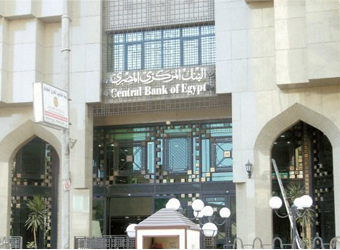The Central Bank of Egypt’s (CBE) board of directors approved a new version of the regulations for mobile payment services on 29 November, the bank announced Wednesday.
This decision coincides with the issuance of the “Customer Due Diligence Procedures for Mobile Payments” by the Egyptian Money Laundering and Terrorist Financing Combating Unit (EMLCU).
The new package of regulations and procedures are by all means a positive step towards the expansion in the use of mobile payment services, with a view to incorporate more individuals and micro
enterprises under the financial services umbrella, said the bank.
CBE deputy governor Lobna Helal highlighted that the introduction of the new regulations is part of the continuous efforts by the CBE to develop sustainable financial services, with the ultimate aim of shifting towards a less-cash economy.
Helal said that the mobile payment service is considered the most efficient financial services tool to achieve financial inclusion, given the noticeably evident wide spread use of mobile phones nationwide.
This mechanism will allow all socioeconomic strata to tap into the financial services market, including low-income individuals, youth, and residents of remote locations, in a fast, affordable and around-the-clock manner, she said.
She added that the new regulations and procedures constitute a new approach in the banking sector and a paradigm shift towards financial inclusion. Under such regulations, banks will be able to employ agents in numerous services, mainly in establishing and verifying customer identity. Additionally, micro enterprises, organisations, and merchants will be able to pay or collect funds through their mobile accounts.
Helal concluded that the new regulations allow customers to receive family remittances into their respective mobile accounts in a simple, convenient, and fast way.
Moreover, money transferred can be disbursed by beneficiaries through agents that are spread across the country.
Ayman Hussein, the assistant sub-governor for the payment systems and business technology department, pointed out that the mobile payment service was launched three years ago, and as of October 2016, the volume of subscribers for mobile payment accounts has reached around 6.2 million, with a growth rate above 60%.
He added that the new regulations stipulated the activation of interoperability among the different payment schemes. It is now possible to let a customer of a particular mobile payment scheme make a payment to a customer associated with any other mobile payment scheme.
Banks licensed by the CBE to provide mobile payment services have been given a six-month grace period for availing the interoperability service to their customers. Additionally, the new regulations have reconsidered the limits of withdrawal, deposit, and balance related to mobile accounts. Under the new regulations, a customer is also permitted to transfer funds between their mobile account and other accounts held within the same bank.
Ayman highlighted that the new regulations secure larger benefits to customers, making the mobile payment service a key platform for the provision of all types of electronic payment and collection services in Egypt, which will open the door for a wide array of new financial services, such as payroll, bill payment, collection of microfinance installments, in addition to government payments.
He also pointed out that the new regulations were founded on a number of critical pillars, mainly cyber security, monitoring of fraudulent activities, and protection of consumer’s rights. He added: “At the CBE, we are so keen to maintain a balanced approach between our desire to achieve financial inclusion and the measures necessary for providing a safe banking service.”
Ayman concluded his statement by ensuring that the new package of regulations and procedures is a result of the continuous cooperation between the CBE, EMLCU, and the National Telecom Regulatory Authority (NTRA).
Source: Daily News Egypt
